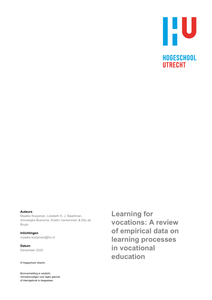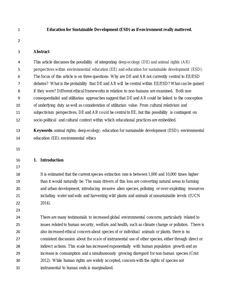Across the globe, linguistically heterogeneous populations increasingly define school systems at the same time that developing the ability to communicate cross-culturally is becoming essential for internationalized economies. While these trends seem complimentary, they often appear in paradoxical opposition as represented in the content and execution of nationwide education policies. Given the differing geopolitical contexts within which school systems function, wide variation exists with regard to how policymakers address the challenges of providing language education, including how they frame goals and design programs to align with those goals. Here we present a cross-continental examination of this variation, which reveals parallel tensions among aims for integrating immigrant populations, closing historic achievement gaps, fostering intercultural understanding, and developing multilingual competencies. To consider implications of such paradoxes and parallels in policy foundations, we compare language education in the US and in the EU, focusing on the Netherlands as an illustrative case study.
LINK
Integrated curricula seem promising for the increase of attention on science and technology in primary education. A clear picture of the advantages and disadvantages of integration efforts could help curriculum innovation. This review has focussed on integrated curricula in primary education from 1994 to 2011. The integrated curricula were categorized according to a taxonomy of integration types synthesized from the literature. The characteristics that we deemed important were related to learning outcomes and success/fail factors. A focus group was formed to facilitate the process of analysis and to test tentative conclusions. We concluded that the levels in our taxonomy were linked to (a) student knowledge and skills, the enthusiasm generated among students and teachers, and the teacher commitment that was generated; and (b) the teacher commitment needed, the duration of the innovation effort, the volume and comprehensiveness of required teacher professional development, the necessary teacher support, and the effort needed to overcome tensions with standard curricula. Almost all projects were effective in increasing the time spent on science at school. Our model resolves Czerniac’s definition problem of integrating curricula in a productive manner, and it forms a practical basis for decision-making by making clear what is needed and what output can be expected when plans are being formulated to implement integrated education.
DOCUMENT

This article reports on a literature review on empirical research investigating learning for vocations in the context of vocational education. We included 36 studies in which learning for vocations is empirically studied. Learning for vocations is characterised based upon prevalent research traditions in the field and framed from the perspective of vocational education and organised learning practices. This framing and characterisation directed the search terms for the review. Results show empirical data on vocational learning and illustrate how learning processes for the functions of vocational education - vocational identity development, development of a vocational repertoire of actions, and vocational knowledge development - actually take place. The review further shows that, empirical illustrations of learning processes that occur in the context of vocational education and organised learning practices are relatively scarce. The findings can be typified in relation to our theoretical framework in terms of three learning processes, that is learning as a process of (a) belonging, becoming, and being, (b) recontextualization, and (c) negotiation of meaning and sense-making. We argue that more empirical research should be carried out, using the functions of vocational education and the three learning processes to better understand vocational learning.
DOCUMENT

From the article The paradigm shift towards competency-based education in the Netherlands has a logical counterpart: the need for more flexibility in the curricula. After all, in competency-based education it is recognized that learning not only takes place in designated places (school, university), but may happen every time when the learner is confronted with a challenge. This observation leads to the necessity to incorporate the learning outcomes of formal and informal education in one curriculum. As a result, the educational process becomes more complex and must be better structured to control the individual learning outcomes. In this paper we discuss this paradox: how more flexibility in the program creates the need for more control in the process. We also discuss what kind of IT-tools are helpful in controlling flexibility in curricula for higher professional education.
MULTIFILE

This book provides insight into an ambitious project to re-invent the educational method practiced at NHL Stenden. The predecessors used different approaches to the delivery of education. One of them used Competency-Based Education, whilst the other practiced Problem-Based Learning. The choice to combine the advantages of both methods, as well as to develop an entirely new concept that provided a better response to the fast and ever-increasing pace of changes in the workplace, was made by both institutions together. This approach was called Design-Based Education (DBE). Given the significant changes required of stakeholders to facilitate learning according to the new DBE approach, it is important to take stock of what these changes mean in terms of teaching and learning and to ascertain from early steps how everybody can stay, or step, on board.
DOCUMENT

On 13 June 2018, Susana Menéndez said farewell as member of the Executive Board of The Hague University of Applied Sciences. To mark that occasion, a symposium was held on leadership in the internationalization of higher education, of which Susana has been a champion over the past ten years.
DOCUMENT

In programmatic assessment (PA), an arrangement of different assessment methods is deliberately designed across the entire curriculum, combined and planned to support both robust decision-making and student learning. In health sciences education, evidence about the merits and pitfalls of PA is emerging. Although there is consensus about the theoretical principles of PA, programs make diverse design choices based on these principles to implement PA in practice, fitting their own contexts. We therefore need a better understanding of how the PA principles are implemented across contexts—within and beyond health sciences education. In this study, interviews were conducted with teachers/curriculum designers representing nine different programs in diverse professional domains. Research questions focused on: (1) design choices made, (2) whether these design choices adhere to PA principles, (3) student and teacher experiences in practice, and (4) context-specific differences between the programs. A wide range of design choices were reported, largely adhering to PA principles but differing across cases due to contextual alignment. Design choices reported by almost all programs include a backbone of learning outcomes, data-points connected to this backbone in a longitudinal design allowing uptake of feedback, intermediate reflective meetings, and decision-making based on a multitude of data-points made by a committee and involving multi-stage procedures. Contextual design choices were made aligning the design to the professional domain and practical feasibility. Further research is needed in particular with regard to intermediate-stakes decisions.
LINK
Internationalization and global citizenship are increasingly becoming the emerging focus of higher education worldwide as universities seek to incorporate global learning in their policies, curricula and strategies. Global engagement, international collaborations, strategic alliances and operations are all on the increase with the aim of delivering future-proof graduates with a global mindset and inter-cultural competences. Additionally, it can be noted that hybridity in education is acutely present through the digitalisation of delivery modes as well as the introduction of new mobility formats, such as faculty-led study abroad programmes and transnational education at branch campuses. So not only do we see more activity, but also more delivery modes of international education. While both digital delivery and new mobility structures transcend traditional boundaries of space and locality, it is precisely this point that can pose serious challenges to the success of international education. Both involve a “relocation” of education; however, when the physical locality, where the students and lecturers are rooted in certain value and beliefs systems, is not considered, the risk is that the educational experience remains one-sided despite the multidimensional context of which it should be a part. Locality is the key to successful and meaningful internationalisation. After presenting the case that locality is of paramount importance, this chapter will outline the conceptual model of intercultureality, which allows education programs to foster and nurture intercultural competence development of students in their own unique landscape from the ground up. Using the metaphor of a landscape, intercultureality provides tools to create an intercultural reality by utilising the unique hybrid of the physical locality, the disciplinary context, the dynamics of the (virtual) classroom as well as the infrastructures in place. The underlying idea is that programmes and institutions can grow any kind of landscape that works for their context, building on the soil of their own previously defined intercultural competence goals. This soil will be enriched by means of five features: the formal curriculum, the pedagogy, the student experience, the informal curriculum, and the organisational and strategic frameworks. The model is further elaborated upon and illustrated with examples of practices of The Hague University of Applied Sciences (THUAS), where the authors work.
DOCUMENT

This article discusses the possibility of integrating deep ecology (DE) and animal rights (AR) perspectives within environmental education (EE) and education for sustainable development (ESD). The focus of this article is on three questions: why are DE and AR not currently central to EE/ESD debates? What is the probability that DE and AR will be central within EE/ESD? What can be gained if they were? Different ethical frameworks in relation to non-humans are examined. Both non-consequentialist and utilitarian approaches suggest that DE and AR could be linked to the conception of underlying duty as well as consideration of utilitarian value. From cultural relativism and subjectivism perspectives, DE and AR could be central to EE, but this possibility is contingent on socio-political and cultural context within which educational practices are embedded. https://doi.org/10.1016/j.envdev.2014.09.001 https://www.linkedin.com/in/helenkopnina/
MULTIFILE
